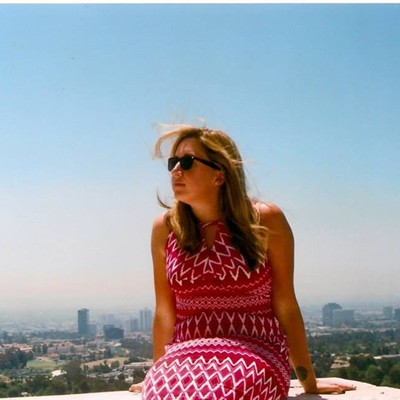Westword: What inspired you to take a public stance in support of Occupy Denver?
Susan Shepherd: I grew up in a working poor family in the 1970s, and my mom worked forty hours a week. There was just never enough money to pay all the bills, so she would make choices like giving up a phone, a car or electricity to put food on our table. Our house was foreclosed on when I was young, and I remember all of that happening. As an adult, I've been unemployed, underemployed and sick without insurance. I've used the ER without insurance and paid that price. All of these things are ones that the people down in the movement are expressing grave concerns about, and I've experienced them, too. It's just natural for me to be down in the movement.
WW: What was your impression of the rally you attended on Saturday?SS: To be honest, I thought it was amazing. I was really moved by the incredible range of people from all walks of life who were there. There's something that's resonating with people there, whether they're gainfully employed and handling all of their bills or not. A lot of people are just struggling to make it these days, and that's a lot of the people I saw down there. It was working people and not-working people, but we were all there for the same reasons.
I saw several of the constituents from my neighborhood. I saw union members, youth, disabled people, older folks, people of different races and identities, even children. There was a kid who stood up and said, "I am here because I want to have a future." He was an eight-year-old kid speaking on behalf of himself and his little sister, and that was absolutely the most compelling thing I've seen so far. We need to be thinking about what we're leaving for future generations. I have a three-year-old son, and that's something I can relate to. WW: How do you hope to see the relationship between the city, the state and the movement change?SS: I don't know that I have an answer for that, and I've been chewing on one since Saturday. I think it's a shame that we're spending this much money on overtime and police coverage for a group that is largely peaceful. I also think it's a shame that it's clear this is resonating across America with people from all walks of life, and we're spending too much time figuring out how to control it instead of trying to solve the legitimate issues and concerns here. We need to be proactive on how we respond to all of this, to the particulars about how they should be able to protest. I want to make sure the message doesn't get lost.
I, on a personal level as well as a political level, would like to speak to some attorneys and other people about what the options are here. I'm absolutely invested in that. I think it's the most important thing going on across the country right now. This government is clearly not working as well as it should for some people, and they're beginning to demand accountability.
WW: In other cities, such as Los Angeles, the Occupy movement has been publicly supported by city officials. Do you think that is a possibility in Denver's future?
SS: Honestly, I definitely wouldn't say that's an option so far. I'd like to think that it's possible, and I'd like to think that our leaders would focus on the message and what we can do to help rather than what we can do to police this.
It's an inevitable fact that change in this country has not happened by people acting legally, judging by all the people in the civil rights movement. And our founding fathers weren't acting legally when they founded this country. At this point, I'm going to focus on solutions that are not about breaking the lawm but focus on productive dialogue and case-by-case advancements. It takes both types of action.There's the pragmatics of their operation to consider, and I do think that the kitchen, that feeding people who don't have food, is an important one.
WW: Why do you think so few officials like yourself have come out in support of the movement?
SS: I think there are a lot of city officials who sympathize and would march, but I don't think there are enough of us. At the end of the day, I think that people should get registered and vote, and if they don't see anyone who can represent them, they should run themselves. In the meantime, though, there is incredible value in doing what they're doing. There has to be a critical mass of us to be willing to step out and challenge the status quo, and we're nowhere near that yet.
I didn't see any elected officials out there I recognized. You know how there's that old saying that 80 percent of life is showing up? Well, the other 20 percent is speaking up. I know a couple of our other city councilors were there on Thursday when the volunteers were being asked to leave, but I think that maybe the other politicians just haven't felt the call to come out yet. It really is a call for leadership, and let's see who shows up. That's my challenge for all of the political figures out there: This is an important time to come out in support of a side, and it's the most important thing happening in this country right now.
Let's see all of you step up.
More from our Occupy Denver archive: "Occupy Denver's Michael Hancock meeting: Mayor refuses to bend on park occupation."











